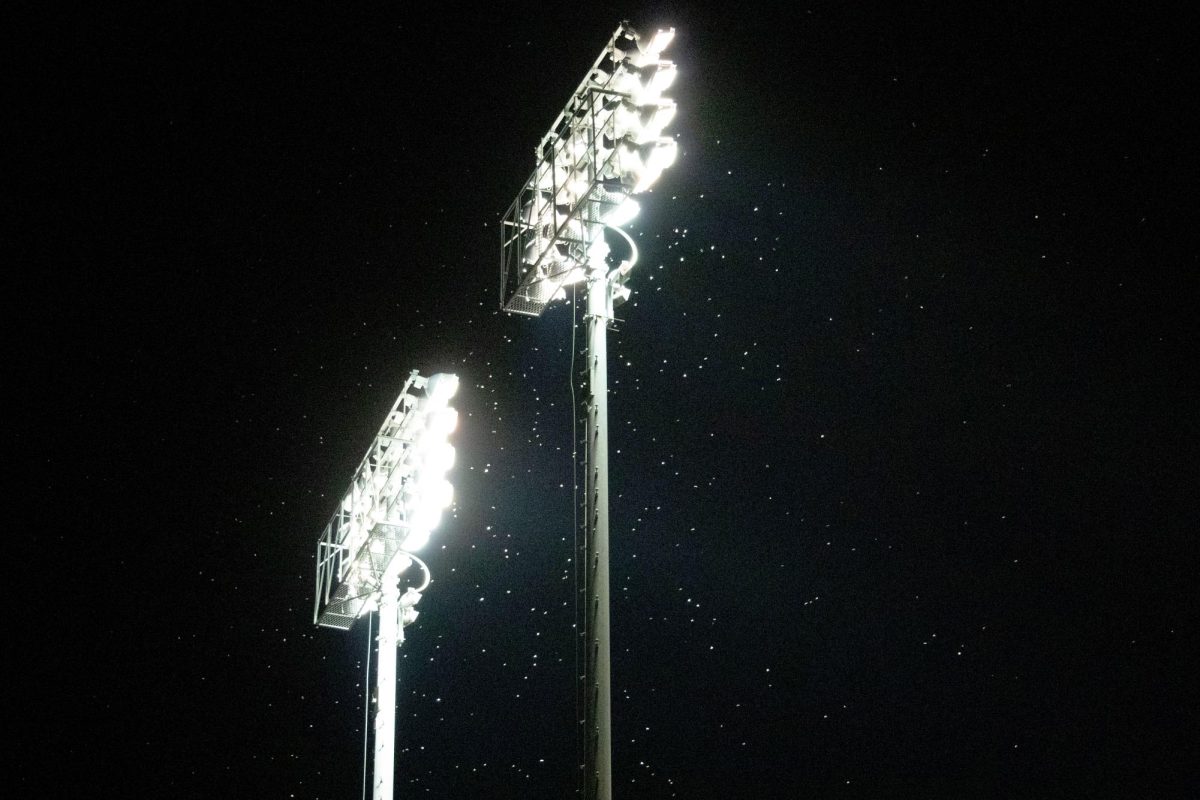The University unveiled brand new LED lights for Darrell K Royal-Texas Memorial Stadium just in time for football season this fall. While many Texas fans appreciate the atmosphere the lights bring, the cycling schedule has generated chatter amongst students who live in the dorms near the stadium.
“I took this video last night at 2 am — this has been the second night that UT Athletics has left the color changing floodlights at DKR on ALL night, making my roommate and I not able to fall asleep for hours,” X, the website formerly known as Twitter, user @okg4be tweeted at athletic director Chris Del Conte.
The LEDs are typically turned on between 8 p.m. and 12 a.m., said Roderick Collier, a biomedical engineering freshman living in San Jacinto Residence Hall, which is located across the street from the stadium.
“They usually go on throughout the week before games,” Collier said. “It’s pretty bright. Even if I were to close my blinds, some light would still be able to go through.”
Some dorm rooms have a direct view of the stadium with no way to block out the light.
“Because I’m on such a high floor, the lights shine directly through my windows,” said Sadie Walkup, a nursing freshman and Jester West resident.
The lights are on a couple nights a week and flash from orange to white, Walkup said, describing her room as looking like a nightclub.
Del Conte responded to the situation in a tweet, explaining that they are testing the entire LED system but that he would ensure testing is done at reasonable times.
One student has concerns about the lights’ effects on the environment.
“I feel like running them so much all the time is a waste of energy,” said Akash Jape, a mechanical engineering freshman living in San Jacinto. “It can cause light pollution in the environment. It could be harmful to birds and other animals that are flying around.”
LEDs use 10 watts, about 75% less energy than incandescent bulbs, according to the Department of Energy. The stadium utilized over 250 bulbs during the fourth quarter of the game against Wyoming, according to a Sept. 16 tweet from the Longhorn Network.
It is unclear whether the lights have permanently ceased to go off at night. The University declined to comment further.




















